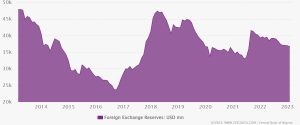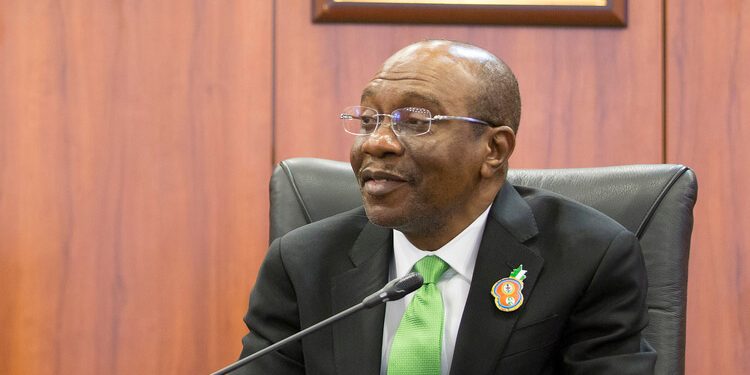Since Godwin Emefiele’s appointment as the Central Bank Governor of Nigeria in 2014, the country’s foreign reserves have experienced significant fluctuations. Nigeria’s foreign reserves refer to the amount of foreign currency held by the Central Bank of Nigeria (CBN) to facilitate international trade transactions and manage the exchange rate.

At the beginning of Emefiele’s tenure, Nigeria’s foreign reserves stood at $37.9 billion, a significant decrease from the $44.3 billion recorded in 2013. This decline was largely attributed to the drop in global oil prices, capital outflows, and rising interest rates in the United States.
However, in the following years, the country’s foreign reserves began to gradually increase due to various policies, such as the Anchor Borrowers’ Programme and other policies that encourage the exportation of non-oil products, implemented by the CBN under Emefiele’s leadership. In 2018, Nigeria’s foreign reserves hit a four-year high of $43.1 billion, a significant increase from the $29.1 billion recorded in 2015.
One of the major policies implemented by the CBN was the introduction of a flexible exchange rate regime, which was aimed at reducing the pressure on the country’s foreign reserves. The flexible exchange rate regime allowed market forces to determine the exchange rate of the naira, Nigeria’s currency, against other currencies. This policy helped attract foreign investment and increased the country’s foreign exchange earnings.
In addition, the CBN implemented various interventions to support key economic sectors, such as agriculture, manufacturing, and the RT200 rebate scheme, in order to build the foreign reserve. These interventions were aimed at reducing the country’s reliance on imports, thereby conserving foreign exchange reserves.
However, despite the various policies implemented by the CBN, Nigeria’s foreign reserves have experienced significant fluctuations in recent years. In 2020, the country’s foreign reserves declined to $35.4 billion, a decrease from the $43 billion recorded at the beginning of the year in 2019. This decline was largely attributed to the COVID-19 pandemic, which led to a drop in global oil prices and a decrease in the country’s foreign exchange earnings.
As of April 2023, Nigeria’s foreign reserve stood at $35.4 billion. This is a significant increase from the $34.8 billion reported in April 2021. The country’s foreign reserve has been on an upward trend since the end of 2021, with consistent growth over the past two years.
In conclusion, while Nigeria’s foreign reserves have experienced significant fluctuations since Godwin Emefiele’s appointment as the CBN governor in 2014, the various policies implemented by the CBN have helped to increase the country’s foreign reserves over the years. However, there is a need for sustained efforts to diversify the country’s economy away from oil and increase foreign exchange earnings from other sectors.










